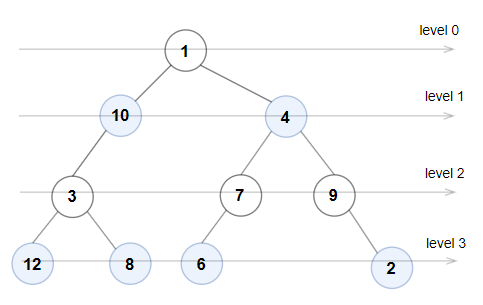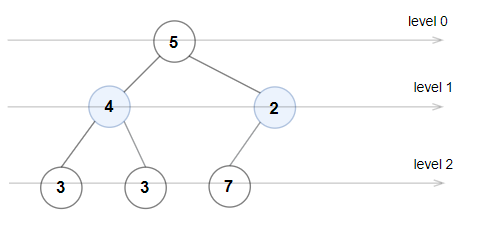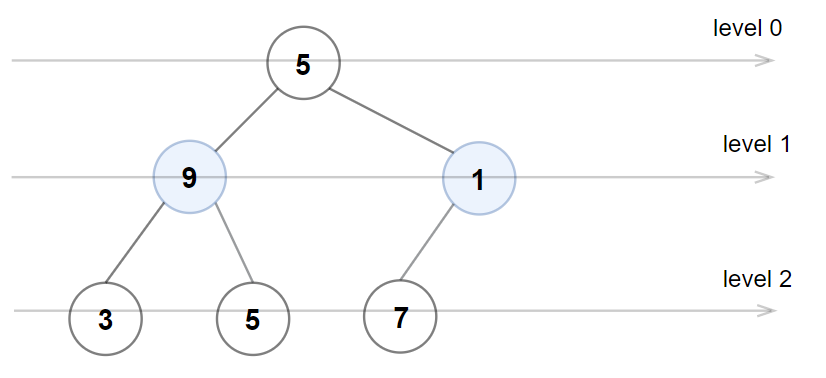LeetCode-in-Java
1609. Even Odd Tree
Medium
A binary tree is named Even-Odd if it meets the following conditions:
- The root of the binary tree is at level index
0, its children are at level index1, their children are at level index2, etc. - For every even-indexed level, all nodes at the level have odd integer values in strictly increasing order (from left to right).
- For every odd-indexed level, all nodes at the level have even integer values in strictly decreasing order (from left to right).
Given the root of a binary tree, return true if the binary tree is Even-Odd, otherwise return false.
Example 1:

Input: root = [1,10,4,3,null,7,9,12,8,6,null,null,2]
Output: true
Explanation: The node values on each level are:
Level 0: [1]
Level 1: [10,4]
Level 2: [3,7,9]
Level 3: [12,8,6,2]
Since levels 0 and 2 are all odd and increasing and levels 1 and 3 are all even and decreasing, the tree is Even-Odd.
Example 2:

Input: root = [5,4,2,3,3,7]
Output: false
Explanation: The node values on each level are:
Level 0: [5]
Level 1: [4,2]
Level 2: [3,3,7]
Node values in level 2 must be in strictly increasing order, so the tree is not Even-Odd.
Example 3:

Input: root = [5,9,1,3,5,7]
Output: false
Explanation: Node values in the level 1 should be even integers.
Constraints:
- The number of nodes in the tree is in the range
[1, 105]. 1 <= Node.val <= 106
Solution
import com_github_leetcode.TreeNode;
import java.util.ArrayList;
import java.util.List;
public class Solution {
private final List<Integer> comp = new ArrayList<>();
public boolean isEvenOddTree(TreeNode root) {
return find(root, 0);
}
private boolean find(TreeNode root, int height) {
if (root == null) {
return true;
}
if ((height % 2 == 0 && root.val % 2 == 0) || (height % 2 == 1 && root.val % 2 == 1)) {
return false;
}
if (comp.size() == height) {
comp.add(root.val);
} else {
if (height % 2 == 0) {
if (comp.get(height) >= root.val) {
return false;
} else {
comp.set(height, root.val);
}
} else {
if (comp.get(height) <= root.val) {
return false;
} else {
comp.set(height, root.val);
}
}
}
return find(root.left, height + 1) && find(root.right, height + 1);
}
}

